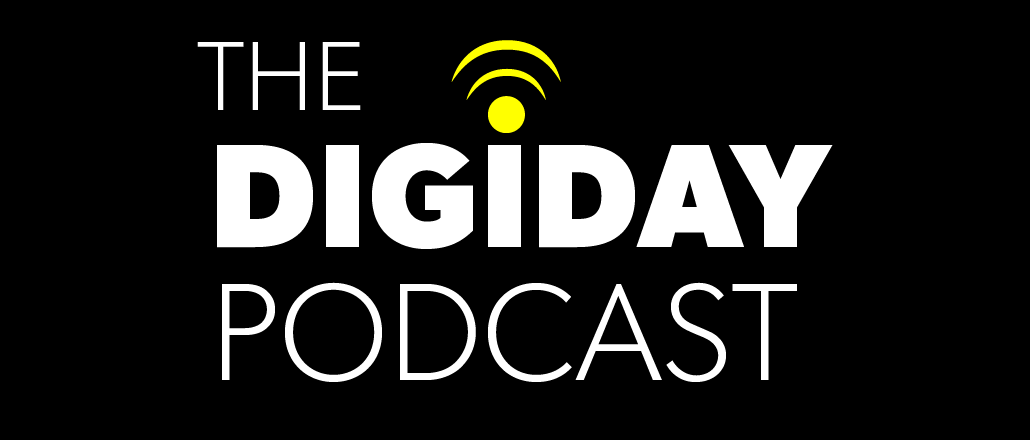
Subscribe: iTunes | RSS | Soundcloud
Whether you want to call it a talent crunch, a creative crisis or just an old fashioned brain drain, there is no escaping the fact that the advertising industry has a people problem. Salaries are low, driving away candidates. When there is work to go around, it’s either too temporary or too high-level for the applicant pool. Talent is such a hot topic that Unilever CMO Keith Weed devoted a large part of his Cannes main stage presentation last year to the brewing war for talent between brands and agencies.
And this week we’re devoting an entire episode of The Digiday Podcast to it. Attracting and retaining talent is an issue that our guest spends more time thinking about than she’d probably like. Lynn Power is president of J Walter Thompson in New York and has more than 25 years of ad industry experience under her belt.
“Talent is a huge, huge, huge issue and a huge priority,” she tells us. “Our industry doesn’t really take it that seriously. When people say it’s a crisis, they talk about the patient being sick, but it’s not like the patient’s been rolled into the emergency room.” Her prescription: Physician, heal thyself.
Some edited highlights from the episode.
The salary situation
“Twenty-five thousand dollars a year [for an entry level job] is beyond pathetic. The industry as a whole has to do a lot of work to fix the salary disconnect. But beyond salary, there are a lot of reasons why people want to come to work. It’s not being stuck on one piece of business. It’s about being able to be flexible, about being able to learn, to go to interesting conferences.”
Beware thine frenemies
“I wish I could say [we were losing talent] to other agencies because that would be an easier problem in a way. But the reality is that we are losing as an industry to our frenemies: the Facebooks, the Googles, the Apples of the world. We’ve had a number of people from our agency leave in the past year. It’s hard to say to someone who gets a great gig at Google, ‘Oh, don’t do that. Stay and do what you were doing.’ Sometimes people go and they realize the grass isn’t greener and that’s great: then they come back. On top of that, there’s a lot of action in the startup space where someone right out of school can go and basically do the marketing for a cool skateboard company or do the marketing for an interesting t-shirt brand and really get hands-on experience that they’re just not going to get in another way. And they’re goin gto get paid more. We have to create the same types of entrepreneurial opportunities in our agencies and as an industry.”
Are clients themselves the problem?
“It’s a chicken and egg: Agencies and the industry haven’t done a good job explaining the value of what creativity is to a business — and why creativity drives brand growth and brand value. There are clients who think they can do it themselves and sometimes they find out there is a reason those [creative] people are good at what they do. It’s easy to say it’s the client’s fault. We also have to take responsibility for what we do and making the secret sauce valuable.”
On millennials
“I think they are somewhat different but in a good way. I think what millennials want are what everyone should want. If you think about the old way — if you think of our generation — it was much more command-and-control. You had bosses; you had people telling you what to do. I hate hierarchy. It’s awful. The reality is millennials have taught us you don’t need that. Leaders can come from anywhere. The best leaders can come from any level of the organization; they don’t have to be the people at the top necessarily.”
Cultivating the right culture is key
“The reality is we’re becoming way savvier about what it takes to retain talent. A lot of agencies like ours have realized that culture eats strategy for lunch. Culture is going to be the differentiator that attracts talent, that makes people stay, that keeps people motivated, empowered, inspired. It’s where we need to rally around and create a culture where creativity is really nurtured and, as an industry, valued. For us it’s about engineering culture and not leaving it to chance.”
And so is diversity
“Diversity for us is an absolute must-do. It’s a business imperative. I saw a study a couple years ago that was fascinating. It talked about how if you gave a business problem to two groups of people — one was a group of Harvard MBAs and one was a group of diverse people — something like 95 percent of the time the group of diverse people came up with the better idea. And I love that. That really shows the power of what it’s all about and it goes beyond race; it goes beyond gender; it goes beyond sexuality. It’s really about diverse thinking in every aspect.”
Sponsored by Bionic Advertising Systems
Intro music: Benny Reiner
Edited by Ricardo Bilton
Produced by Eric Blattberg
More in Marketing

WTF are tokens?
When someone sends a prompt or receives a response, the system breaks language into small segments. These fragments are tokens.

AI is changing how retailers select tech partners
The quick rise of artificial intelligence-powered tools has reshaped retailers’ process of selecting technology partners for anything from marketing to supply chain to merchandising.

YouTube’s upmarket TV push still runs on mid-funnel DNA
YouTube is balancing wanting to be premium TV, the short-form powerhouse and a creator economy engine all at once.





